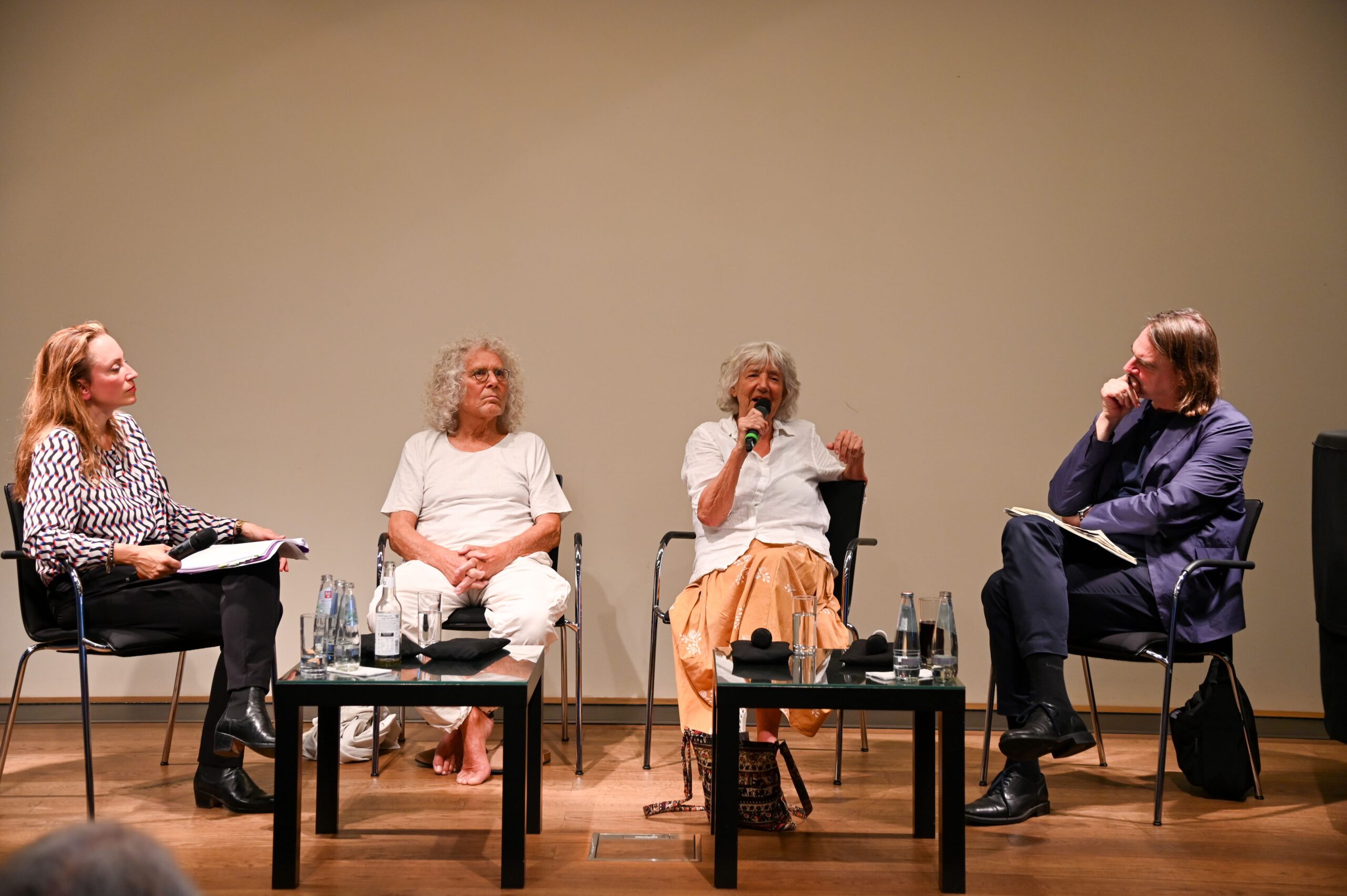What remains of “1968” – event review
The 1968 movement propagated a freer, fairer society – it wanted to overcome authoritarian structures, outdated norms and the repression of the Nazi past in Germany and develop new ways of living, loving and thinking. In newly formed communities such as “Commune I”, material possessions were questioned, emotional openness was practiced and living together was rethought. But what has remained of this striving for personal liberation and social change? What can we learn from the ’68 movement for our own time and where do we perhaps need new ideas and utopias?
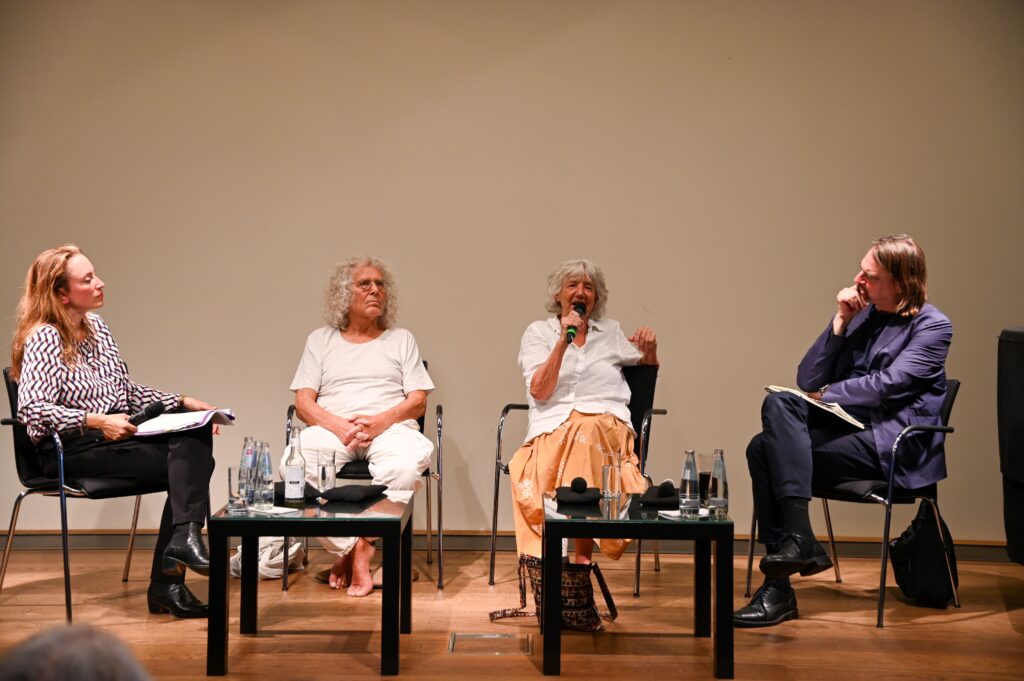
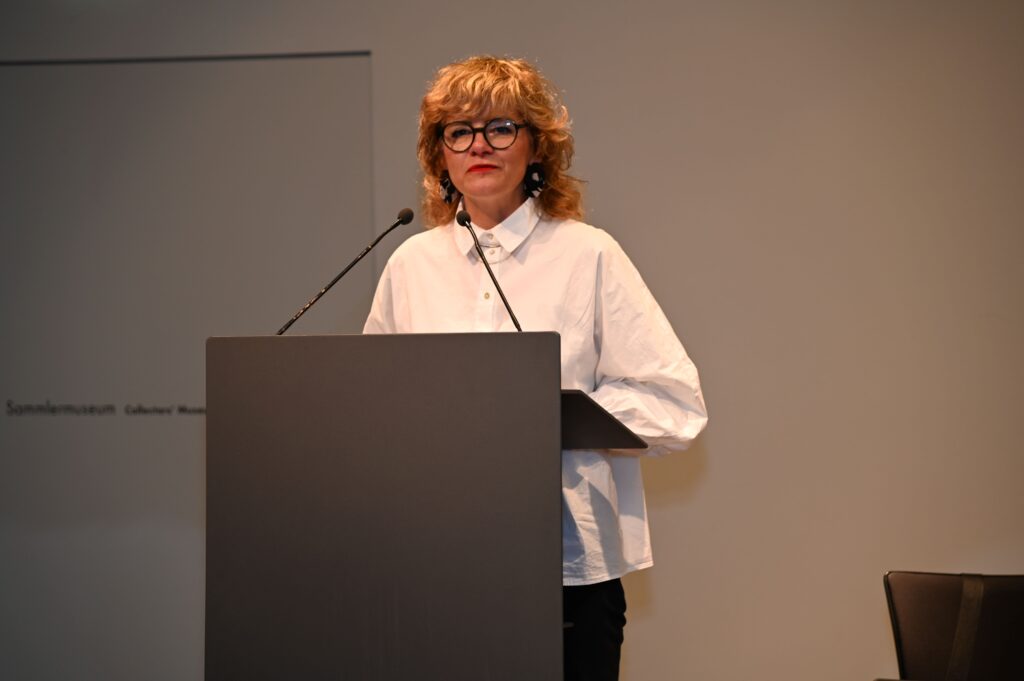
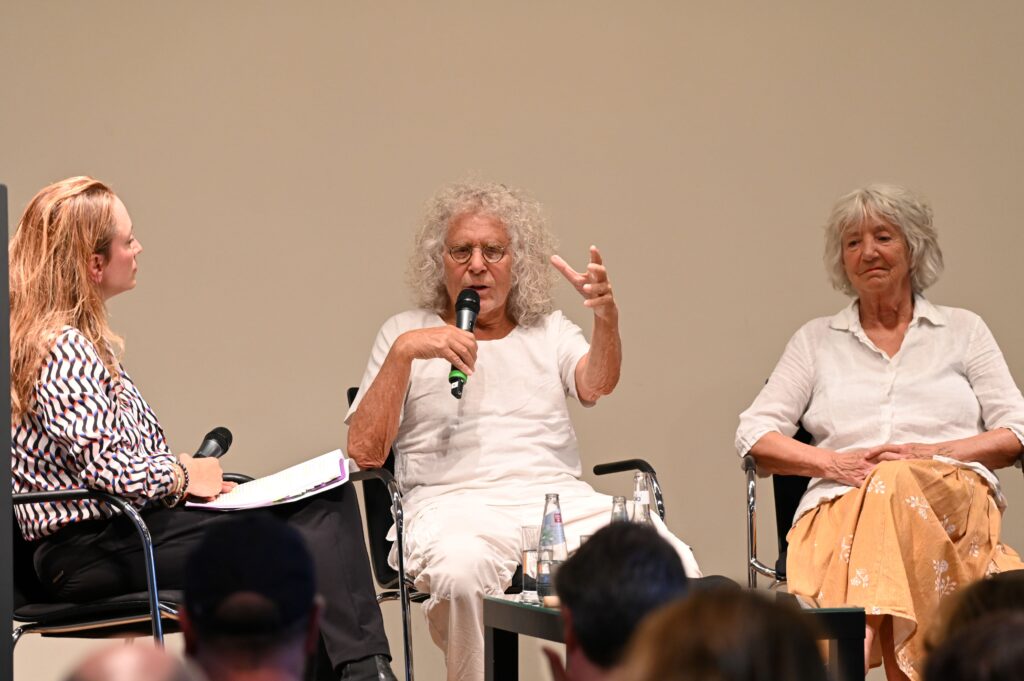
The event “Utopia and awakening of the 1968ers – What remains of political rebellion and individual self-liberation” on July 14, 2025 at the Historisches Museum was dedicated to these questions. Over 200 visitors in the packed Leopold-Sonnemann-Saal were keen to hear Rainer Langhans, Christa Ritter and Martin Saar, who were welcomed by Doreen Mölders (Director of the Historical Museum). For Rainer Langhans, a former member of “Commune I”, 1968 was above all an intangible, collective experience of all-encompassing love that could only be rationally explained in retrospect and that people wanted to achieve again through “sex, drugs and rock’n’roll” or political revolutionary efforts. The filmmaker Christa Ritter particularly emphasized the feeling of resistance against her parents’ generation and feminist literature, which had a strong influence on her at the time of the 1968 movement. Social philosopher Martin Saar, on the other hand, supplemented these perspectives on 1968 with the Frankfurt view of the events of the time, which focused on the politically influenced intentions and the scope for social change.
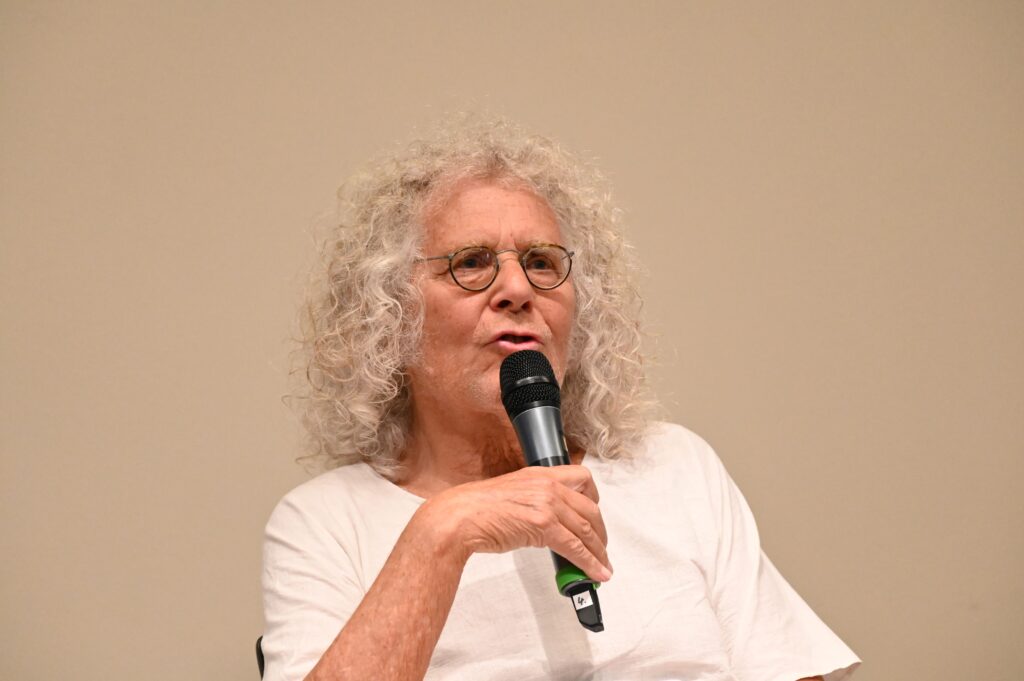
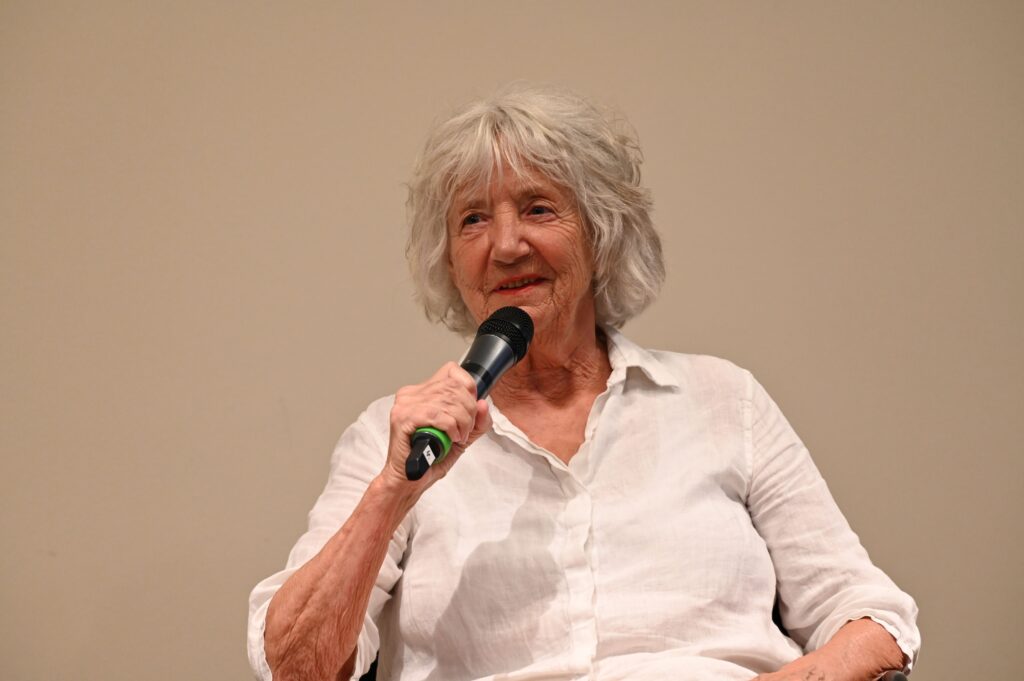
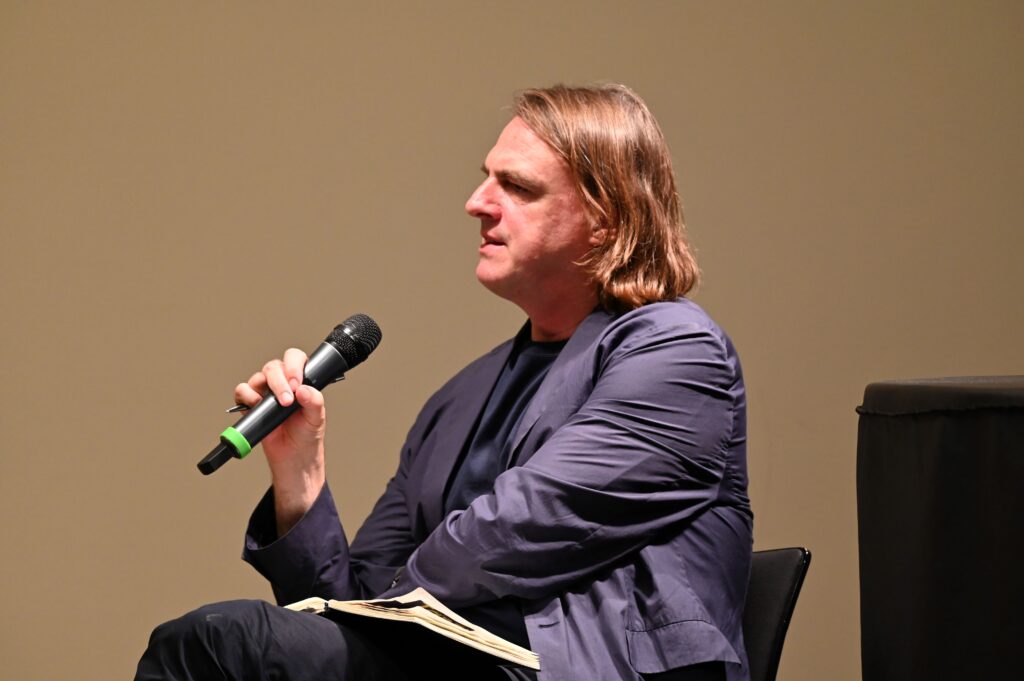
The discussion then moved on to the conflicts and contradictions within the 1968 movement, with Christa Ritter and Rainer Langhans also reporting on their attempt to continue the feeling of 1968 via the path of spirituality and their life together in the Munich “harem”. The question of what we can still take away from 1968 for the present was again answered differently by the panellists: while Rainer Langhans emphasized that we must continue on the path away from our material needs and therefore also learn to die, Martin Saar saw the continuation of non-conformism and resistance against the authoritarian, bourgeois-patriarchal society today above all in the young queer movement.


